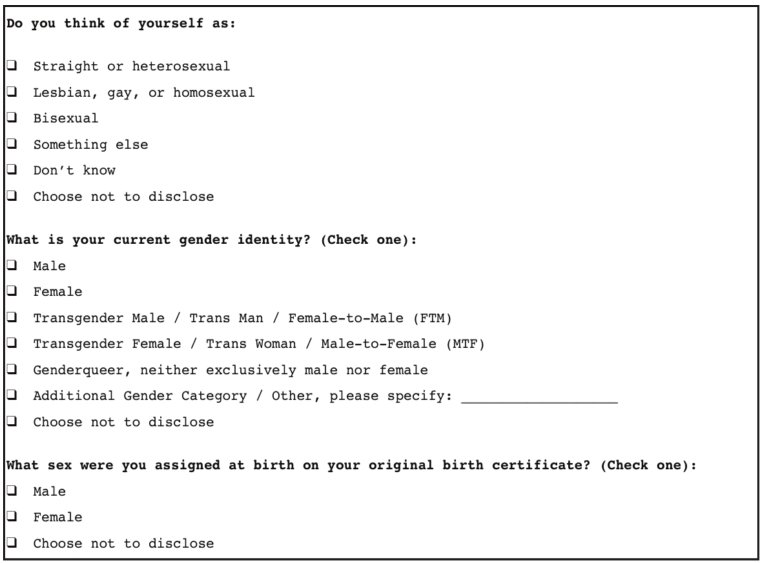
How can a new cluster of questions on healthcare intake forms impact the health of the LGBTQ community overall? SOGI — the new hot acronym in public health — stands for Sexual Orientation and Gender Identity information as recorded in electronic health records. Previously lacking, a recent movement to collect SOGI data has the potential to power changes toward friendlier, more knowledgeable clinical environments, as well as improvements in community health.
Comparing LGBTQ populations with other groups reveals multiple health disparities, which are differences that should be preventable but that show worse health outcomes for our community as a whole. Rates of certain cancers — such as breast and anal cancer — are higher, in part due to receiving fewer preventative screenings because of lack of access, insufficient knowledge about LGBTQ care, and medical mistrust. LGBTQ people are understandably hesitant to disclose sexual orientation or transgender status in potentially hostile environments, which contributes to being overlooked as at-risk populations for such community-specific health needs. Clinicians may not understand what kinds of screenings are needed, especially for transgender and non-binary patients. Binary “M” and “F” checkboxes have always been inadequate to describe the diversity of genders and bodies that exist, but until recently there was no meaningful way to capture more nuanced information in a patient’s chart. Because SOGI information has not been collected, population data and public health research about LGBTQ issues has been uneven to nonexistent.
But the old practices are changing: starting in March 2016, federally funded community health centers have been required to collect SOGI demographic data. Simply having population numbers helps with the creation and funding of targeted health initiatives. Population data that is connected to information about health problems in LGBTQ individuals allows for analysis of community health trends such as substance use, sexually transmitted infections, and health needs that are currently going unmet. Training for collection of SOGI data should be presented in context with cultural competency training and information about barriers to healthcare, helping to build a safer environment in which to discuss sexual orientation and gender identity.
The Fenway Institute in Boston is home to the National LGBT Health Education Center, which has led the way in recommendations for SOGI data collection. The latest suggested format includes one question about sexual orientation, two about sex and gender (with several options, including genderqueer), and a place for the name and pronouns a person wishes to be called within the clinic setting, at last addressing the issue of trans and gender nonconforming patients being misgendered by staff and providers. Gender and sexual orientation recorded in an individual’s health records should also be subject to HIPAA privacy laws, protecting it from disclosure unless a provider medically needs to know.
Collecting more complex information through SOGI offers healthcare providers a chance to accurately record and understand the diverse experiences of LGBTQ patients — and to treat us with respect.
Support City Pulse - Donate Today!
Comments
No comments on this item Please log in to comment by clicking here